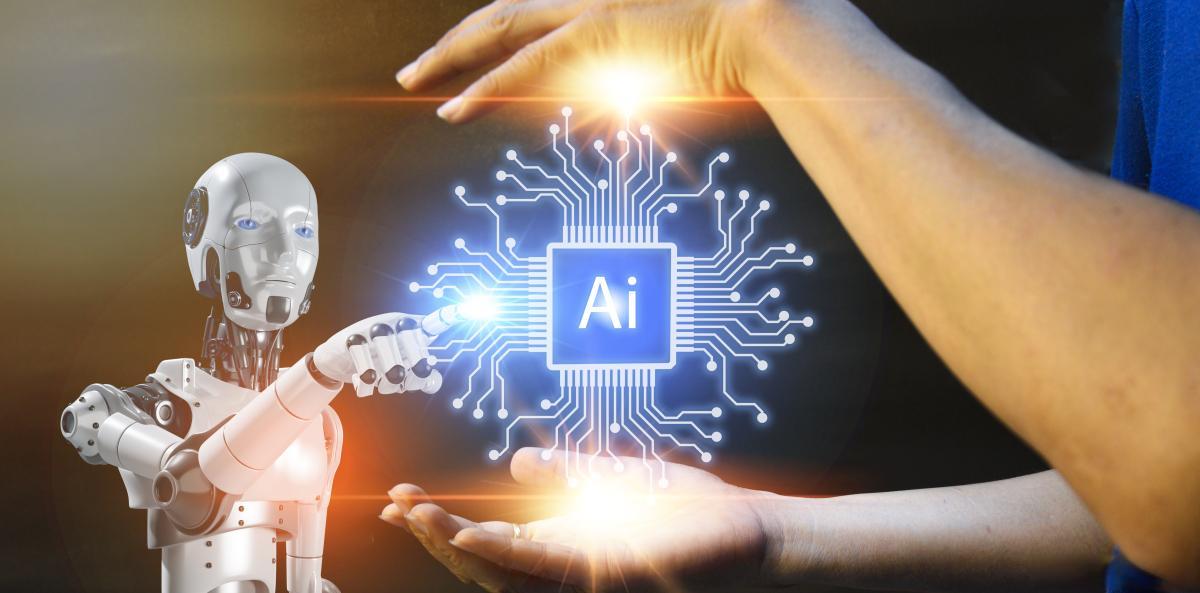Artificial Intelligence (AI for short) refers to a technology that computer system simulates human intelligent thinking and behavior through learning, reasoning, perception, understanding, judgment and decision-making. The core of AI technology is machine learning, that is, processing and analyzing a large number of data through training algorithms, and learning and extracting useful information and rules from them, so as to continuously optimize and improve their intelligence.
AI technology covers many different fields and applications, including natural language processing, image recognition, machine vision, speech recognition, robotics, intelligent recommendation, virtual reality and so on. These applications can play a role in many fields, such as health care, finance, energy, manufacturing, transportation, education, entertainment and so on.
In a word, artificial intelligence is a technology that can simulate human intelligent thinking and behavior. It enables computer systems to complete a series of complex tasks and decisions independently through machine learning and pattern recognition.
Artificial intelligence (AI) can bring us many benefits. The following are some of the main benefits:
-
Automation: AI technology can automate many repetitive tasks, saving time and labor costs.
-
Intelligent decision-making: AI system can provide more intelligent decision-making for human beings by analyzing a large amount of data and information.
-
Customer service: AI can improve the quality and efficiency of customer service, such as providing instant service and support to customers through intelligent robots or chat bots.
-
Health care: AI technology can help doctors and health care professionals make diagnosis and treatment decisions, while improving the efficiency and accuracy of health care services.
-
Resource management: AI can help enterprises and government agencies to better manage resources, for example, by forecasting and planning energy demand and supply, and optimizing the supply chain.
-
Education and training: AI can provide a better education and training experience, such as optimizing the learning process through personalized learning paths and real-time feedback.
-
Safety and security: AI can help protect public safety and personal safety, for example, through automatic monitoring and detection systems to identify security threats and abnormal behaviors.
In a word, AI technology can improve efficiency, accuracy and intelligence, provide better service and support for human beings, and bring more commercial and social value.
Artificial intelligence (AI) has been widely used in various fields, including but not limited to the following aspects:
-
Natural Language Processing (NLP): transforming human language into computer-readable forms, such as machine translation, speech recognition, text classification and sentiment analysis.
-
Image recognition and Computer Vision (CV): Computer vision technology enables computer systems to recognize and understand images and videos, such as face recognition, object detection, automatic driving and security monitoring.
-
Machine Learning (ML): By training algorithms, computer systems can automatically learn and adapt to new data, thus improving the accuracy of prediction and decision-making, such as recommendation system, credit evaluation, risk control and medical diagnosis.
-
Robotics: Using artificial intelligence technology, robots can accomplish tasks that humans can’t, such as autonomous navigation, cooperative operation, intelligent control and service robots.
-
Automation and intelligent manufacturing: using artificial intelligence technology to realize the automation and intelligence of production process and supply chain, such as intelligent logistics, intelligent warehousing, intelligent quality control and intelligent equipment.
-
Virtual reality and augmented reality: through artificial intelligence technology, virtual reality and the real world are combined to realize a more immersive user experience, such as virtual training, virtual fitting, virtual tourism and augmented reality applications.
In short, artificial intelligence technology has been widely used in various fields and industries, which has changed our way of life and work, but also brought great opportunities and challenges for future technological development and innovation.
The impact of artificial intelligence (AI) on employment in modern society is twofold: on the one hand, AI technology can create new employment opportunities, on the other hand, it will also affect the employment of some traditional industries.
-
New employment opportunities: With the development of AI technology, more and more companies and organizations need professional AI engineers, data scientists, machine learning experts and AI strategists. In addition, AI technology has also created some new professional fields, such as intelligent robot engineers, voice interaction designers and virtual reality developers.
-
Impact of employment in traditional industries: AI technology will also have a certain impact on employment in traditional industries. For example, AI technology can automate many repetitive tasks and jobs, thus reducing the work that needs to be done by human beings. This may lead to the reduction of jobs in some traditional industries, such as manufacturing, administration and support services.
However, it should be pointed out that AI technology will not completely replace human work. On the contrary, it usually cooperates with human beings to improve efficiency and quality. Therefore, for the job market in modern society, it is important to improve skills and transformation ability to adapt to the rapidly changing technology and job market.

关于作者